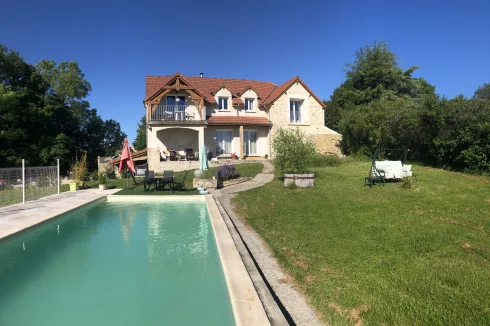France Residence Permit Language Test Toughened
Wednesday 07 March 2018
The French government have raised the minimum level of French language competence required for those seeking a permanent resident permit.
One of the formalities of obtaining a residence permit to live permanently in France is an obligatory language test.
It is required for non-EU nationals seeking a 'carte de resident.'
Hitherto, the language test used has been the DILF - Diplôme Initial de Langue Française - a basic certificate equivalent to level A1 of the Council of Europe's Common European Framework of Reference for Languages (CEFR).
Obtaining it attested to a ‘sufficient’ competence in the French language to allow a permanent resident visa to be granted.
However, in 2016 a substantial new immigration law was passed which presaged a tougher language test, and a decree setting out mechanics of the new test finally emerged last month.
The decree specifies that the new level of language competence required for a visa is A2 of the CEFR.
Whilst the A1 standard testifies to an introductory understanding of the French language, the A2 standard is a level that would enable the applicant to undertake a basic training course or obtain access to basic employment.
As formidable as this might sound, the A2 standard still remains an elementary level of comprehension; there are four higher levels in the CEFR scale B1, B2, C1, and C2.
Those seeking French nationality are required to take a test equivalent to B1 standard, although those aged of 60+ (or disabled/chronic illness) are exempt from the test.
More specifically, the visa test requires the applicant to demonstrate:
The tests can be taken by authorised training bodies, normally arranged through the prefecture. The test is operative from 7th March 2018.
Those aged at least 65 years old are exempt, as are those who hold a mainstream French educational qualification.
Strictly speaking, also exempt from the test those seeking the visa «résident de longue durée - UE» who are of EU nationality, but we hear of many instances where a test has been imposed.
However, some prefectures are clearly processing the incorrect visa for EU nationals. As Debra Archer of the RIFT citizens’ rights campaign group in France points out: “EU nationals should make sure they apply for the 'Carte de Séjour "Citoyen UE/EEE/Suisse - Séjour Permanent', so as to avoid the language test. It is the correct residence card for EU nationals after 5 years of lawful residence."
It is required for non-EU nationals seeking a 'carte de resident.'
Hitherto, the language test used has been the DILF - Diplôme Initial de Langue Française - a basic certificate equivalent to level A1 of the Council of Europe's Common European Framework of Reference for Languages (CEFR).
Obtaining it attested to a ‘sufficient’ competence in the French language to allow a permanent resident visa to be granted.
However, in 2016 a substantial new immigration law was passed which presaged a tougher language test, and a decree setting out mechanics of the new test finally emerged last month.
The decree specifies that the new level of language competence required for a visa is A2 of the CEFR.
Whilst the A1 standard testifies to an introductory understanding of the French language, the A2 standard is a level that would enable the applicant to undertake a basic training course or obtain access to basic employment.
As formidable as this might sound, the A2 standard still remains an elementary level of comprehension; there are four higher levels in the CEFR scale B1, B2, C1, and C2.
Those seeking French nationality are required to take a test equivalent to B1 standard, although those aged of 60+ (or disabled/chronic illness) are exempt from the test.
More specifically, the visa test requires the applicant to demonstrate:
- An understanding of isolated sentences and frequently used expressions in relation to everyday situations (personal and family information, shopping, close environment, work, etc.).
- Communication of routine daily tasks requiring only an exchange of simple information concerning familiar subjects.
- Description by rudimentary means of their training, of their immediate environment, and subjects corresponding to their immediate needs.
The tests can be taken by authorised training bodies, normally arranged through the prefecture. The test is operative from 7th March 2018.
Those aged at least 65 years old are exempt, as are those who hold a mainstream French educational qualification.
Strictly speaking, also exempt from the test those seeking the visa «résident de longue durée - UE» who are of EU nationality, but we hear of many instances where a test has been imposed.
However, some prefectures are clearly processing the incorrect visa for EU nationals. As Debra Archer of the RIFT citizens’ rights campaign group in France points out: “EU nationals should make sure they apply for the 'Carte de Séjour "Citoyen UE/EEE/Suisse - Séjour Permanent', so as to avoid the language test. It is the correct residence card for EU nationals after 5 years of lawful residence."
There is no requirement for a language test for UK nationals living in France prior to Brexit.
A comparison of the requirements for the A1 and A2 standards is set out below.
A comparison of the requirements for the A1 and A2 standards is set out below.
| French Language Tests Comparison | |
| A1 | A2 |
| Je peux comprendre des mots familiers et des expressions très courantes au sujet de moi -même, de ma famille et de l'environnement concret et immédiat, si les gens parlent lentement et distinctement. | Je peux comprendre des expressions et un vocabulaire très fréquent relatifs à ce qui me concerne de très près (par ex. moi-même, ma famille, les achats, l’environnement proche, le travail). Je peux saisir l'essentiel d'annonces et de messages simples et clairs. |
| Je peux comprendre des noms familiers, des mots ainsi que des phrases très simples, par exemple dans des annonces, des affiches ou des catalogues. | Je peux lire des textes courts très simples. Je peux trouver une information particulière prévisible dans des documents courants comme les publicités, les prospectus, les menus et les horaires et je peux comprendre des lettres personnelles courtes et simples. |
| Je peux communiquer, de façon simple, à condition que l'interlocuteur soit disposé à répéter ou à reformuler ses phrases plus lentement et à m'aider à formuler ce que j'essaie de dire. Je peux poser des questions simples sur des sujets familiers ou sur ce dont j’ai immédiatement besoin, ainsi que répondre à de telles questions. | Je peux communiquer lors de tâches simples et habituelles ne demandant qu'un échange d'informations simple et direct sur des sujets et des activités familiers. Je peux avoir des échanges très brefs même si, en règle générale, je ne comprends pas assez pour poursuivre une conversation. |
| Je peux utiliser des expressions et des phrases simples pour décrire mon lieu d'habitation et les gens que je connais. | Je peux utiliser une série de phrases ou d'expressions pour décrire en termes simples ma famille et d'autres gens, mes conditions de vie, ma formation et mon activité professionnelle actuelle ou récente. |
| Je peux écrire une courte carte postale simple, par exemple de vacances. Je peux porter des détails personnels dans un questionnaire, inscrire par exemple mon nom, ma nationalité et mon adresse sur une fiche d'hôtel. | Je peux écrire des notes et messages simples et courts. Je peux écrire une lettre personnelle très simple, par exemple de remerciements. |
Related Reading:
Thank you for showing an interest in our News section.
Our News section is no longer being published although our catalogue of articles remains in place.
If you found our News useful, please have a look at France Insider, our subscription based News service with in-depth analysis, or our authoritative Guides to France.
If you require advice and assistance with the purchase of French property and moving to France, then take a look at the France Insider Property Clinic.





